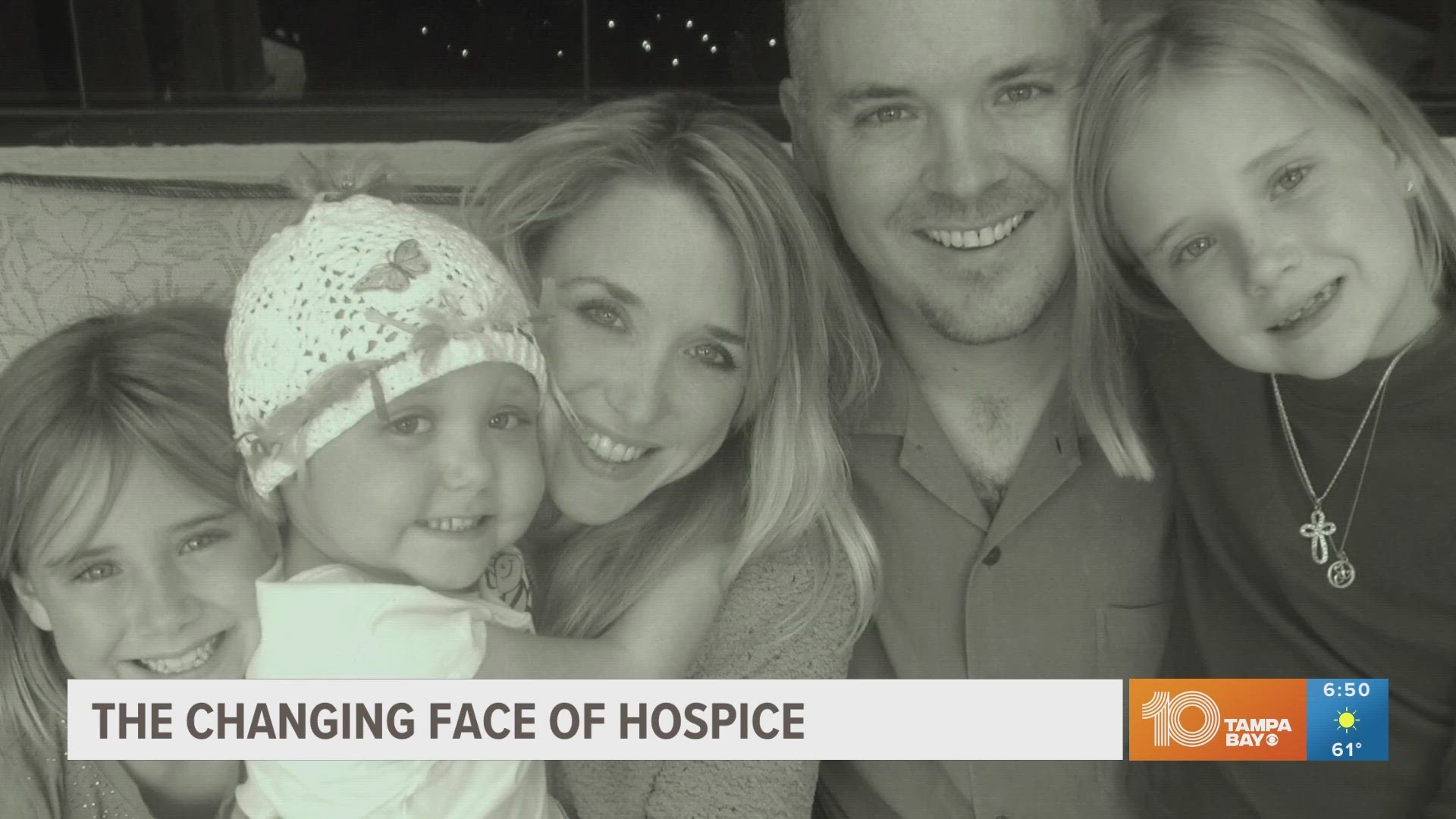SARASOTA, Fla. — This Sunday will mark one year since President Jimmy Carter entered hospice care at home. While the average time in hospice is 70-80 days, some people defy the odds. And that's largely due to the changes in hospice care over the years.
A Sarasota family knows how difficult that decision can be. They lost their 5-year-old daughter to cancer and now say hospice care is something they wish they would have gotten sooner.
"Very spunky, feisty, very determined, but completely compassionate."
Holly and Patrick Wright light up when they talk about their little girl, Payton.
"And I think that strength that she had is what helped her really try to fight the battle that she was in."
A battle that began in May of 2006. Just weeks after turning 4 years old, Payton was diagnosed with a very rare brain cancer.
Patrick talked about how difficult it was when doctors began telling him there was nothing more they could do.
"Towards the end of 2006, right around November, December, it was just getting heavy," he said.
That's when Patrick first tried to talk to Holly about hospice.
"When you hear the word hospice, it's just this very dark cloud over you. You were going to a room and that's it. You're done," she said.
But after a few conversations, Holly's feelings started to change.
"Once we heard the things that they could do, it made it a little easier for us to not have to lug her back and forth to the hospital," she said. "And it changed my perception."
Johnathan Fleece is the President and CEO of Empath Health. He says hospice is about so much more than death.
"We refer to it as full life care for all," Fleece said. "And the real meaning behind full life is end-of-life care; hospice care is as much about living as it is about dying in the end of life."
He says hospice is not about the loss of hope, it's about experiencing life.
"Whether it's some of our special programs like music therapy, pet therapy, aromatherapy, art therapy, you know so many things that can end up being keepsakes that families might hold onto and treasure," he said.
Payton's hospice care was brought to her home, where she and her family were comfortable.
"The care was just absolutely amazing, amazing."
Holly says she had no idea how much they would be able to help.
"There was so much that they had to offer for the entire family. They were really coming in and helping through the most devastating situation that you could ever go through. And to have that support system, how do you measure that?"
Fleece says the job is to bring care, compassion and sometimes even joy, in a dark time.
"We hear all too often, people wish they had reached out sooner in their journey and wished they had known more about just how impactful and just how beautiful the end-of-life experience can be with hospice," he said.
That's something Patrick and Holly wish for all families who may be losing someone they love. Payton passed away at her home on May 29, 2007.
"It really was such a blessing to have them come in and I wish families knew how important they are and how much they would help."
Patrick and Holly started the Payton Wright Foundation to help other families who have children being treated for cancer of the brain and spinal cord.
According to Medicare, hospice care is available to anyone with a life expectancy of 6 months. If you have any questions, you can reach out to Empath Health.

